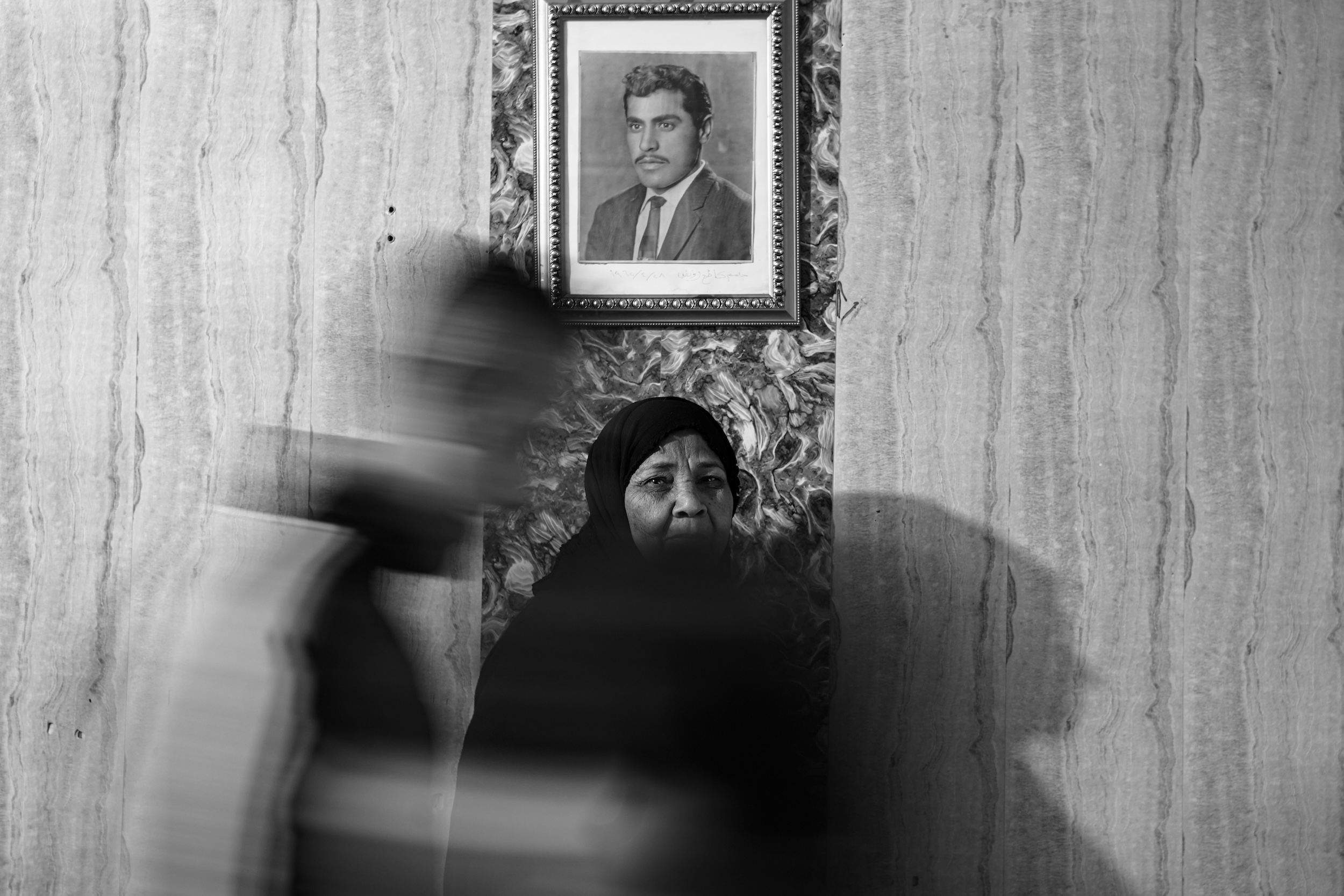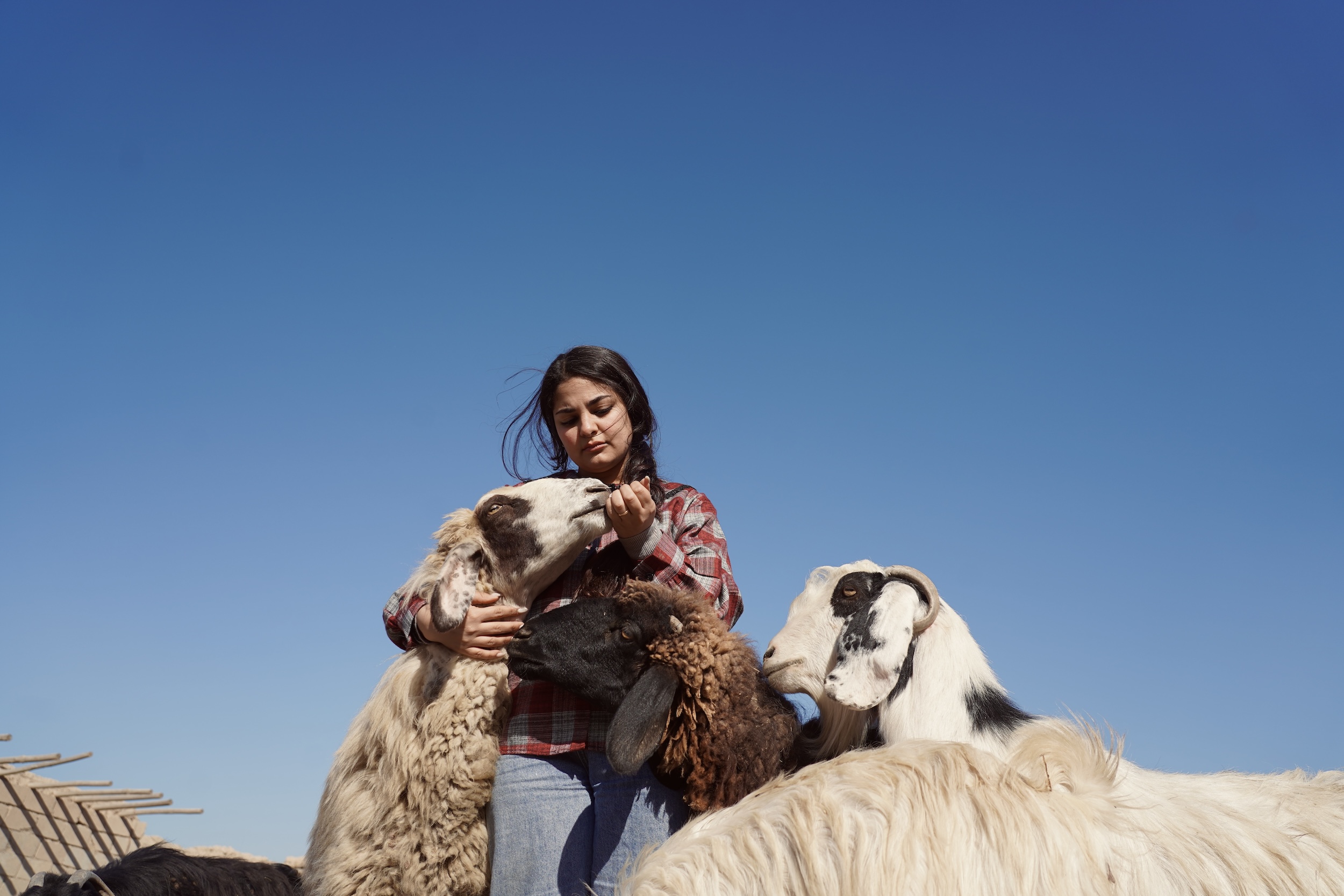© Helen al-Wandi
Iraqi Female Photographers is a collective addressing systemic sexism, a lack of women’s stories and institutional support in the country
In the heart of Baghdad, a group of women is leading a shift in Iraqi photography, filling a gap left by a lack of institutional support in the region. Iraqi Female Photographers (IFP), a grassroots collective of women behind the lens, is rewriting what visual storytelling can look like in Iraq. When they noticed the need for a space such as IFP, “we launched it immediately,” says Forqan Salam, co-founder of the group and a photographer for Reuters since 2019, “bringing together women photographers working in street, journalistic and documentary photography.”
IFP was founded in early 2024 by Salam and Iraqi photographer Ishtar Obaid, and drew on their experiences of being denied access to spaces, facing harassment, and confronting a photography community often steeped in patriarchy. “The challenges start with family and societal restrictions,” Salam explains. “Then, on the streets, we face harassment, unwanted attention, and even exploitation simply because we’re women. For example, with the upcoming month of Muharram, there are many places we won’t be able to photograph freely.”
This collective frustration and a deep love of the craft brought IFP to life, with the photographers keen to build a positive space encouraging strength in numbers. The group quickly gained traction, organising exhibitions, workshops and meet-ups that connected photographers across Iraq. Their first major showcase, Through Their Eyes: The First Steps, held in partnership with the French Institute in Baghdad in spring 2025, featured the work of 25 women, and was led by British photojournalist Emily Garthwaite, who lived and worked in Iraq from 2019 to 2023 (she now lives between the UK and Iraq). “I first learned of Iraqi Female Photographers online and reached out to them with intrigue and delight,” recalls Garthwaite. “I asked if I could be involved in any capacity and was grateful to be brought into the fold.”
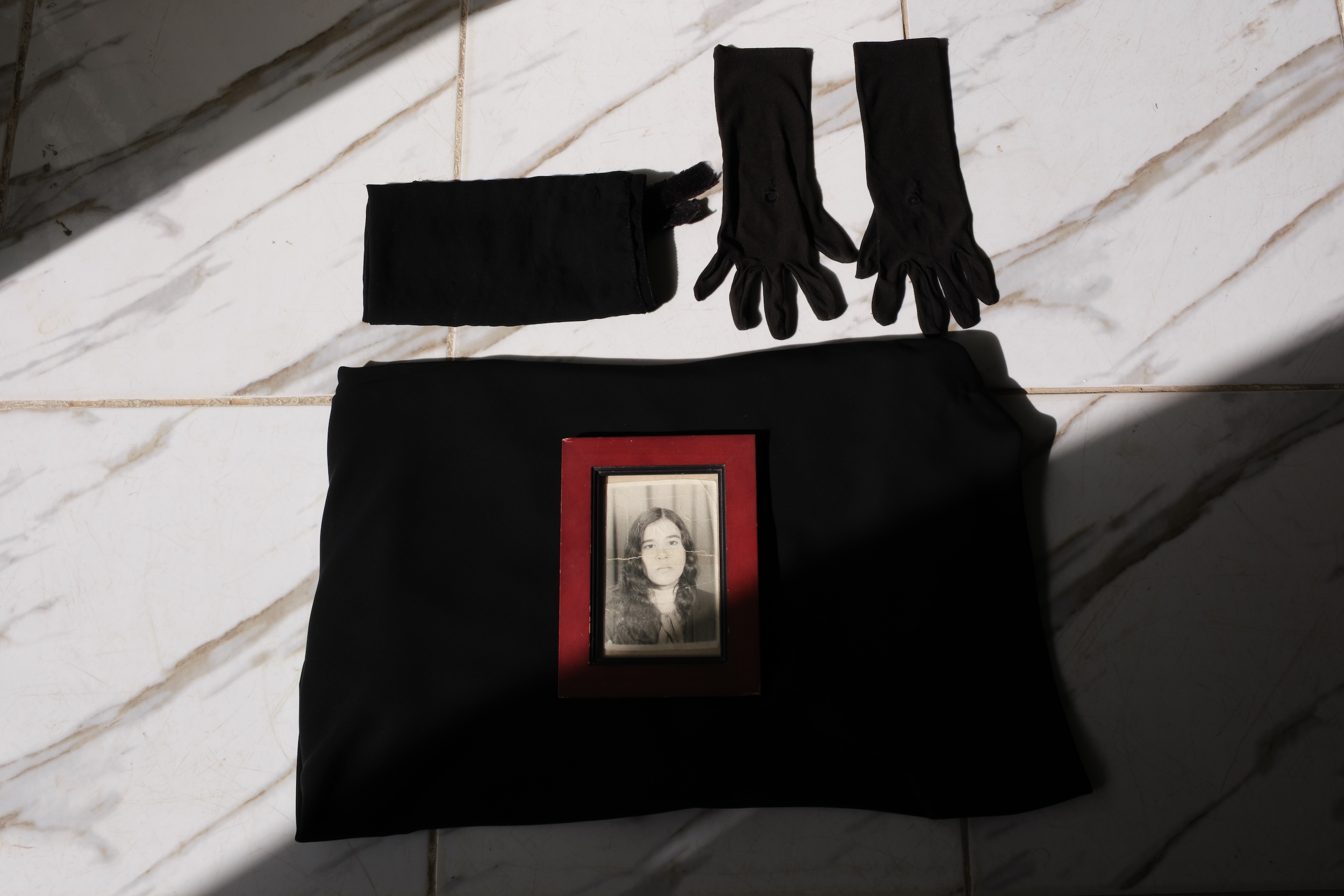
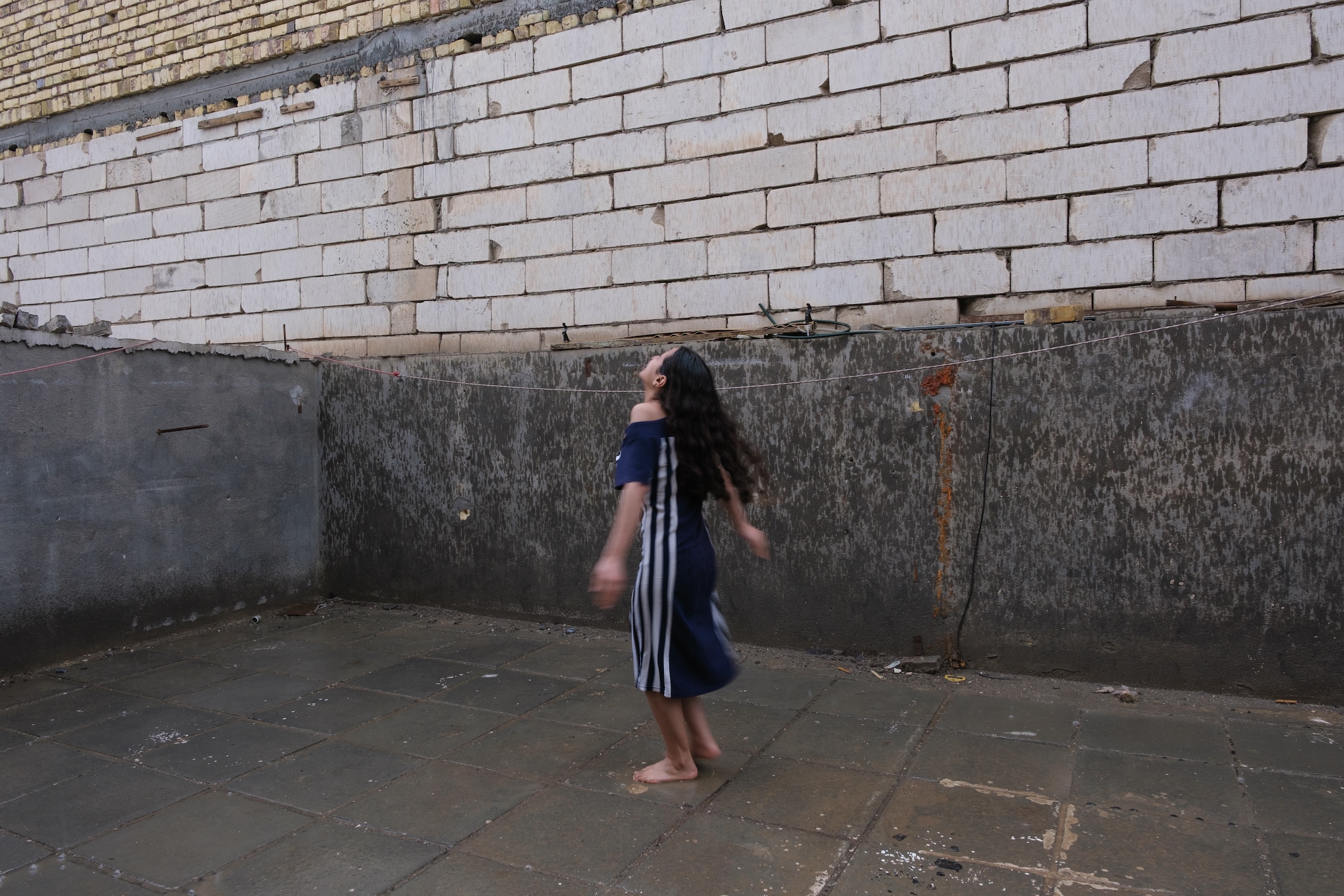
“If we have more working women photographers in Iraq, we don’t just achieve greater gender equality within Iraq’s photography industry, we also gain greater equity in storytelling”
Over two intensive workshop days in Baghdad in November 2024, Garthwaite worked closely with IFP members on everything from image sequencing and pitching, to navigating identity through the camera. “We had women joining from around Iraq, supported by family members,” she says. “When women gather, we uplift one another, and we seek solutions. We soothe one another. Creativity is not reserved for the lucky few; it’s within us all. What we often need is the confidence to pursue it, and this is a driving force within IFP.”
For Raghad Kisam, a film-maker and storyteller with over eight years of experience, IFP offered “a real boost of confidence” and a community rooted in a shared mission. “I deeply believe in the power of visual storytelling to create change, challenge stereotypes and celebrate resilience,” she says.
Her work often draws on memory, culture and identity, creating personal narratives that speak to larger truths. One of her most poignant projects, Unseen Bonds, explores the impact of decades of war on family relationships in Iraq. “I have only one digital photograph with my late father,” Kisam says. “Because of the wars, our shared memories were never captured and that absence stayed with me.”
She reimagines a family album that never was, constructing images from light, objects, and the quiet spaces of memory. “Unseen Bonds reflects how conflict doesn’t just destroy infrastructure, it quietly reshapes how we remember, connect and grieve across generations.”
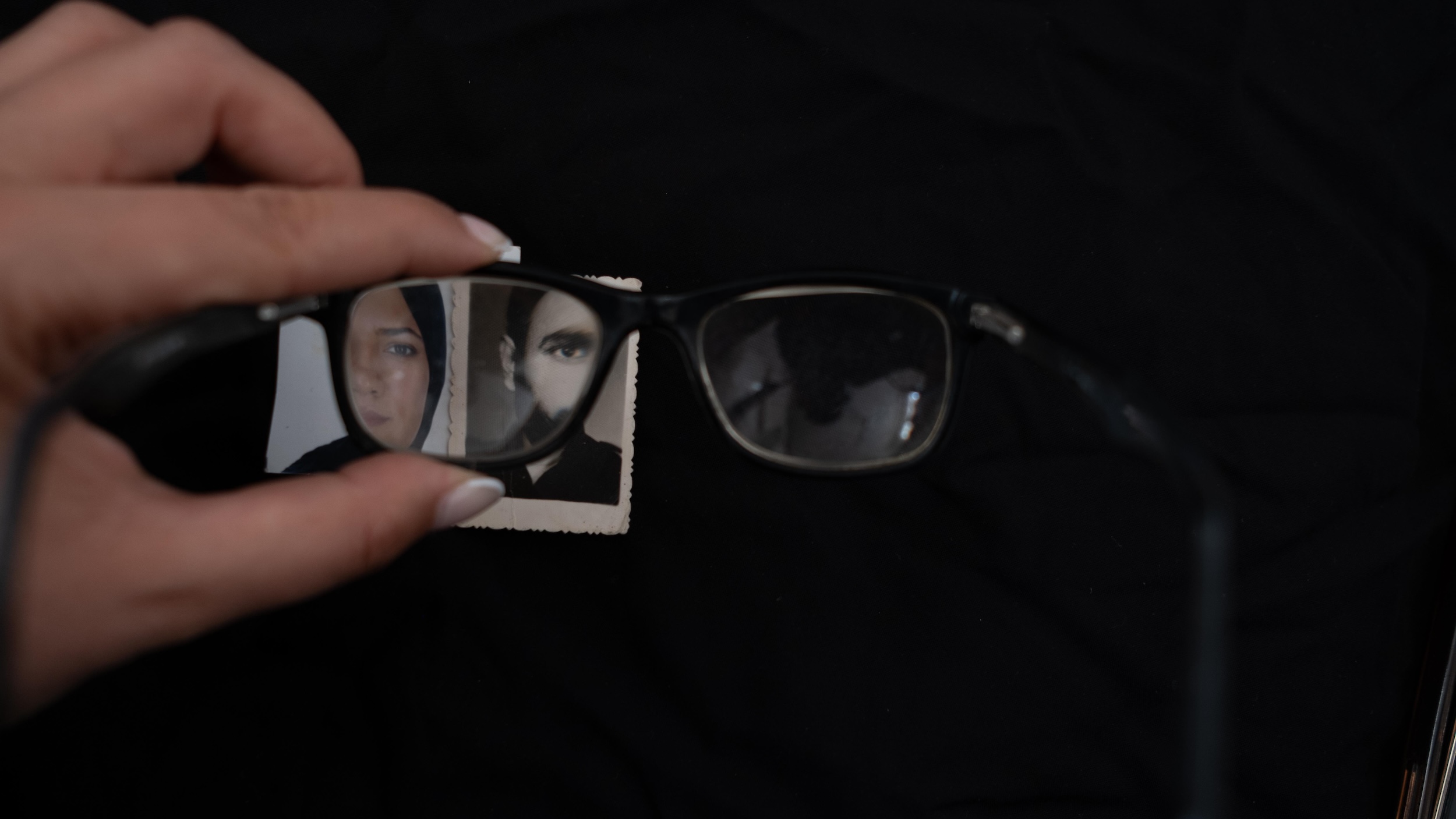
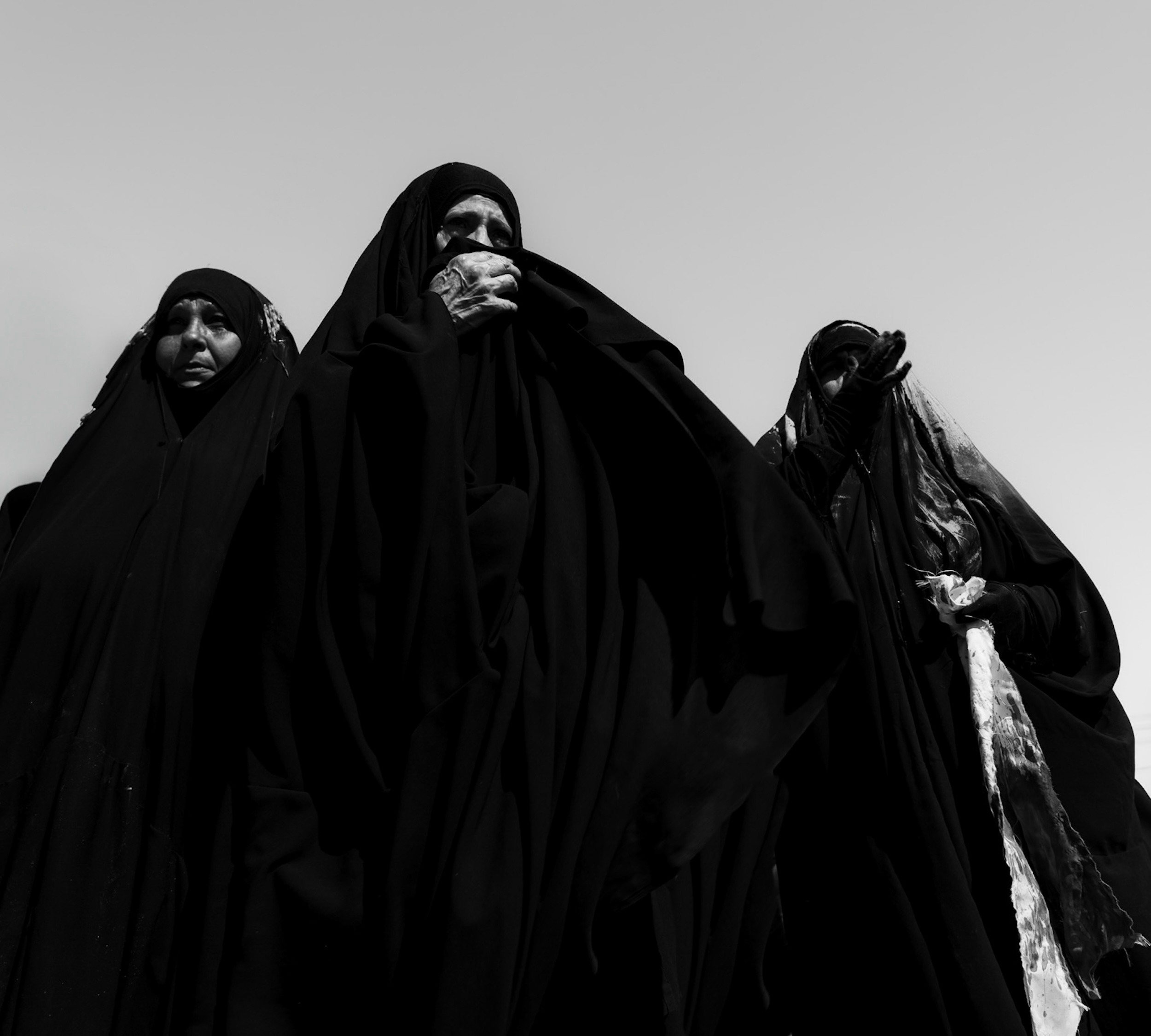
This kind of intimate, emotionally layered storytelling is emblematic of IFP’s ethos. For Salam, her first documentary project Shadow – developed during a visual journalism workshop with VII Academy – marked a milestone in her practice.
“It explores what is expected from women versus what they truly want to pursue,” she explains. “I love this project deeply, it was my very first documentary work.” While the creative energy is palpable, the challenges remain stark. “One of the main challenges is the lack of genuine support and trust among individuals,” Kisam points out. “We need to build real connections based on encouragement rather than competition or undermining each other’s work.” She also stresses the “major need for financial support, especially for long-term projects”.
Garthwaite explains that greater opportunities for women create a ripple effect for Iraqi storytelling on the international stage. “Male photographers are unable to enter many parts of homes in Iraq, but women photographers are permitted to do so,” she notes. “If we have more working women photographers in Iraq, we don’t just achieve greater gender equality within Iraq’s photography industry, we also gain greater equity in storytelling.”
And storytelling is at the core of everything IFP does. “Our discussions and the advice we exchange have been truly valuable,” Salam says. “Through the IFP workshop and exhibition, I was able to present my very first documentary project.” As the collective moves forward, armed with resources and female solidarity within a blooming industry, the women of IFP are shaping not only how Iraq is seen, but who gets to do the seeing.
